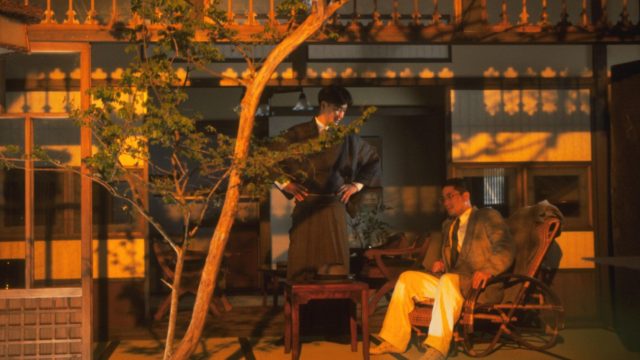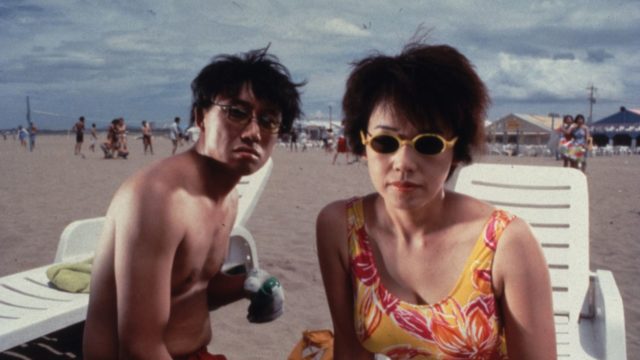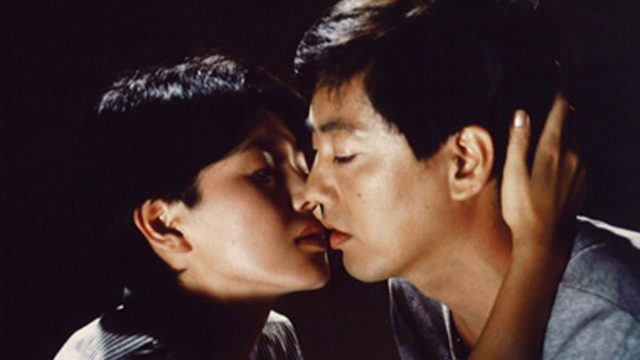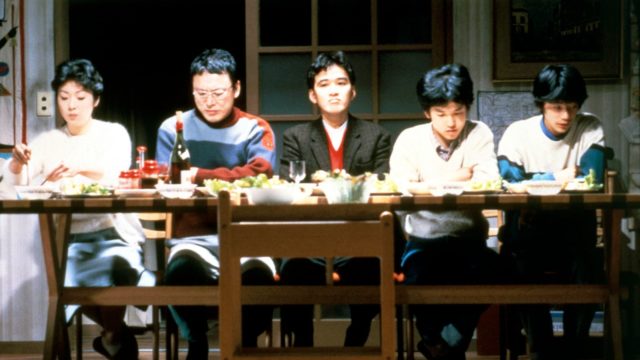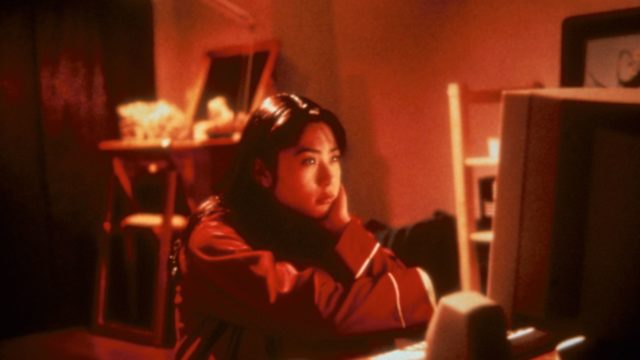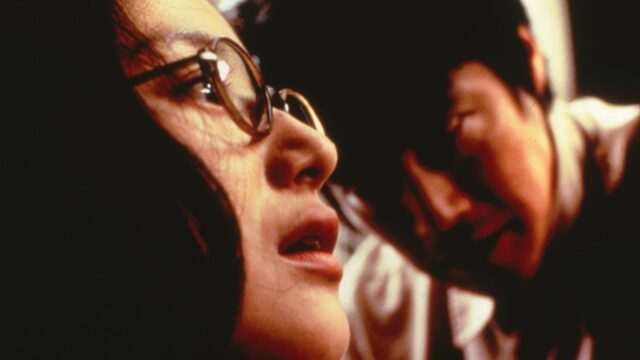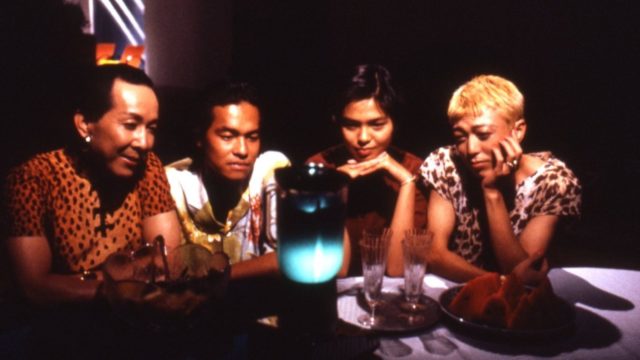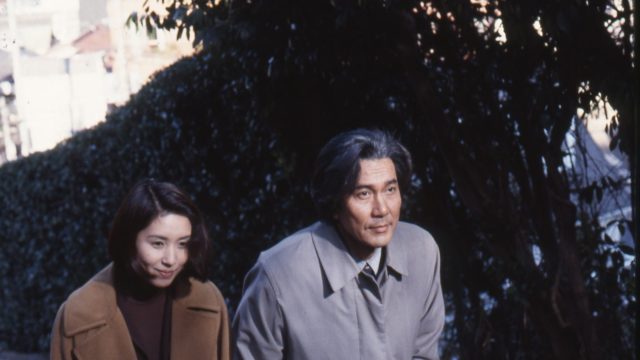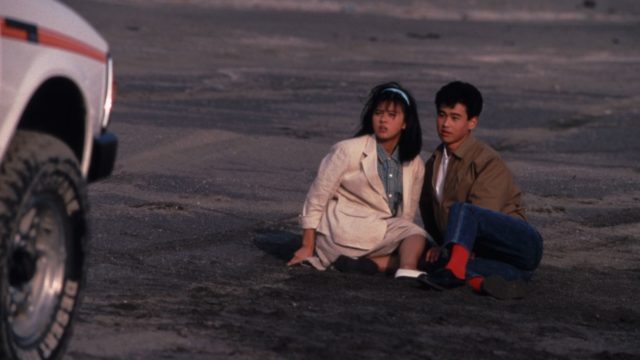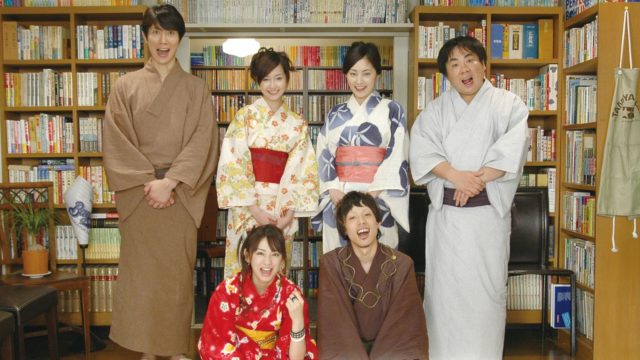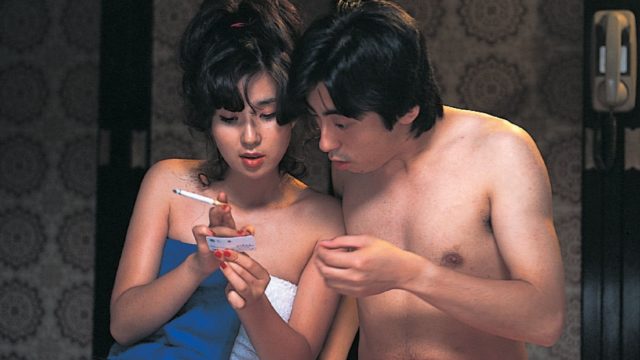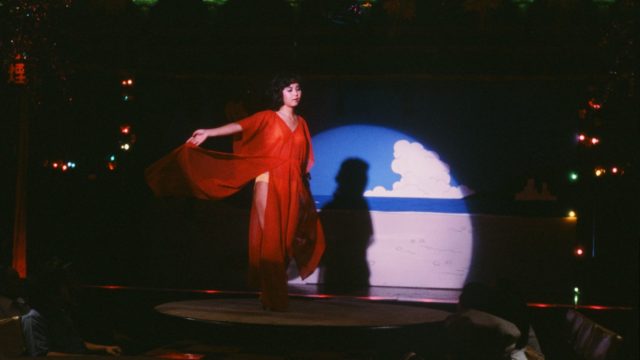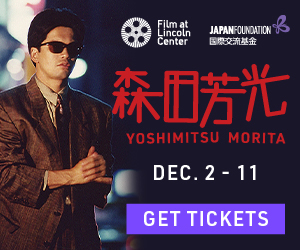
And Then
Morita’s award-winning first foray into period films is an adaptation of master of literary modernism Sōseki Natsume’s celebrated novel of the same title. Morita’s second and final collaboration with the iconic Yūsaku Matsuda (The Family Game), who stars alongside legendary actors like Chishū Ryū of Ozu fame.
The Black House
Introduction from producer Kazuko Misawa on Dec. 3
In Morita’s provocative and utterly absorbing midcareer feature (and first horror film), an insurance agent receives a phone call from a suicidal woman, setting in motion a chain of increasingly unnerving events.
Deaths in Tokimeki
Introduction from producer Kazuko Misawa on Dec. 2
A visually arresting mood piece shrouded in mystery follows a young man as he prepares for a deadly hit job under orders from a shadowy organization. Awe-inducing camerawork abounds, and Morita’s powerful direction is heightened by Osamu Shiomura’s unforgettable 1980s synth score.
The Family Game
New 4K Remaster | Introduction from producer Kazuko Misawa on Dec. 2
Visually inventive, bitingly sharp, audacious, and full of wit, The Family Game announced the arrival of Morita as a remarkable new voice in Japanese cinema whose influence still sends out ripples today. This 1984 New Directors/New Films selection finally returns in a new 4K remaster.
Haru
Before Nora Ephron’s You’ve Got Mail, there was Haru—an off-kilter tale of boy-meets-girl-virtually in the early days of internet chat rooms. Intrigued by the power of words as a visual medium, Morita inventively incorporates onscreen text into his pop avant-garde sensibility.
Keiho
A spellbinding synthesis of the courtroom drama and the psychological thriller, Keiho follows a young actor as he stands trial for a gruesome double murder—but his strange behavior in custody makes the police and criminal psychologists alike suspicious that there’s more to this story than meets the eye.
Lost Paradise
Introduction from producer Kazuko Misawa & composer Michiru Oshima on Dec. 4
Adapted from a novel by Junichi Watanabe, Morita’s sixteenth feature is an expansive mood piece and a meditative tale of forbidden love, starring Hitomi Kuroki and Kōji Yakusho as passionate paramours in a society in which infidelity is eminently taboo.
Main Theme
This star vehicle for pop idol Hiroko Yakushimaru is a coming-of-age romance between an apprentice magician and a former preschool teacher who has lost her way. Morita uses his sizable, industry-backed budget to present an irreverent road movie full of delightful tricks and confetti.
The Mamiya Brothers
A charming, tender comedy that recalls Morita’s earliest narrative features, The Mamiya Brothers follows two siblings who live together and have created an entire world unto themselves—a world that changes radically when the elder brother falls for a video rental store clerk.
Something Like It
Morita’s debut theatrical feature is a charming and comical coming-of-age tale set in the worlds of rakugo, a traditional form of Japanese sit-down comedy, and sex work. Real-life rakugo artists are featured in abundance, lending the film an authenticity that enhances Morita’s stylized viewpoint.
Top Stripper
Morita’s early feature marked his foray into the pink film and is a coming-of-age tale suffused with anarchic energy and a rebellious touch all his own. It follows a young man who falls in love with a local exotic dancer, setting the stage for a host of disappointments and triumphs.


